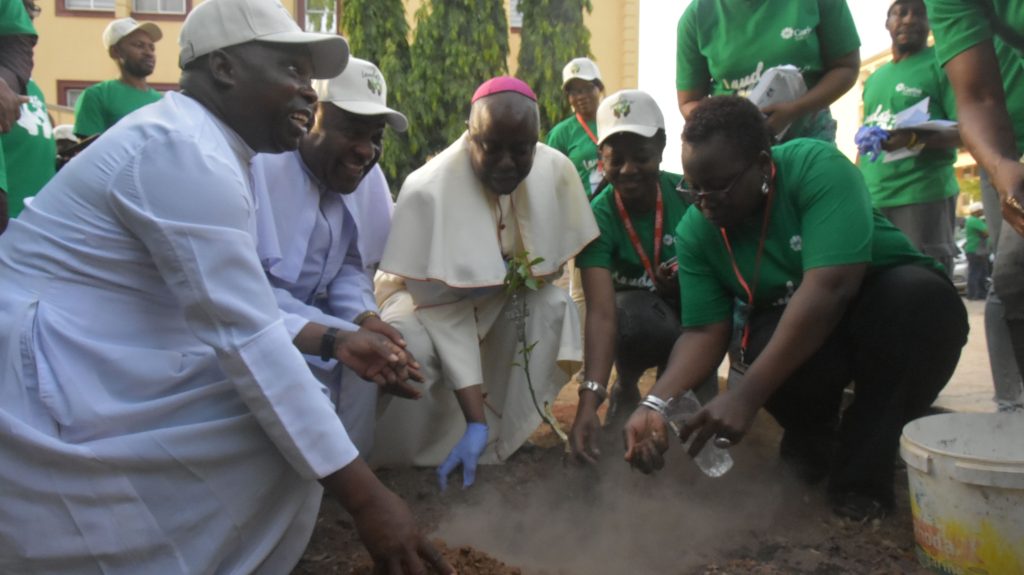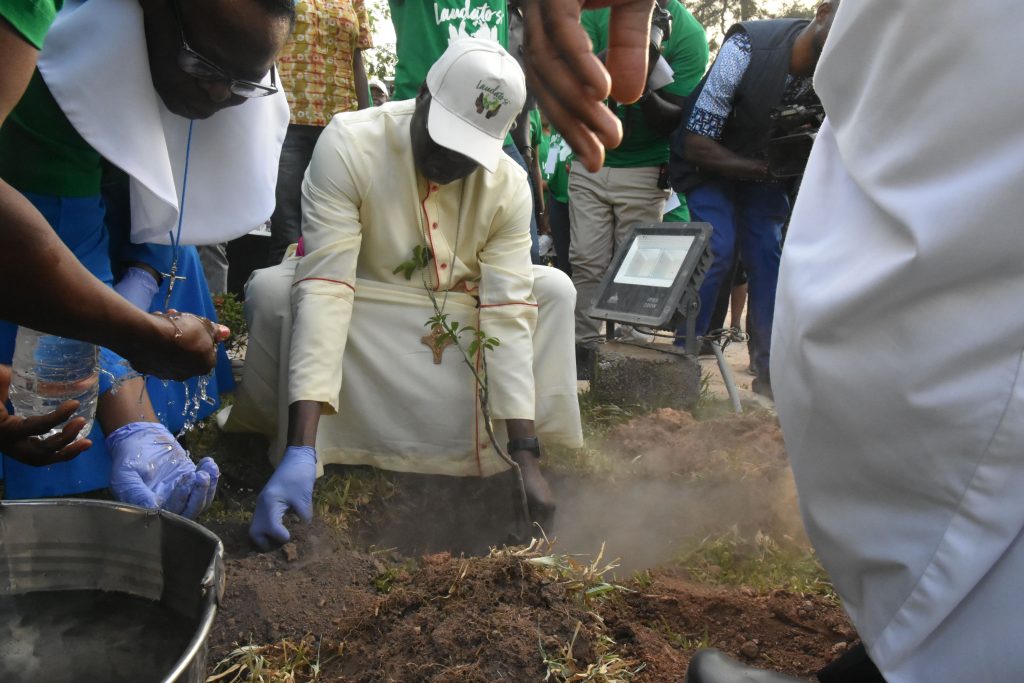
Caritas Nigeria directors planting tree with a Bishop.
In the Nigerian landscape, where environmental challenges vary from desert encroachment to gully erosion and flooding, the Catholic Bishops Conference of Nigeria (CBCN) has embarked on a journey inspired by Laudato Si’. Dr. Emmanuel Okechukwu, the Public Health Specialist and Coordinator of the Environment Unit at Caritas Nigeria, sheds light on the purpose and impact of the national tree-growing campaign.
“Caritas Nigeria, as the humanitarian arm of the CBCN, aligns itself with the strategic objectives outlined by the Conference. In response to Pope Francis’s call for responsible ecological citizenship, we chose tree-growing as a concrete action for Laudato Si’,” says Dr. Emmanuel. The initiative aims to address the global crisis of climate change through nature-based solutions, with a commitment to planting 20,000 trees per Diocese annually for the next five years.
Community-Led Transformation: The Heart of the Campaign
The heart of the campaign lies in the active participation of local communities. “At their first plenary meeting for 2023, the CBCN initiated the national catholic tree-growing campaign, urging diocesan structures and communities to join the cause,” emphasized Dr. Emmanuel. “Families, pious societies, and parishes were animated to plant economic trees within and around their spaces,” he explains.
Communities played a pivotal role by not only planting the seedlings but also maintaining them. Dr. Emmanuel underscores the significance of their efforts, stating, “Local communities took charge of watering seedlings, especially during the dry season, and protected them from potential threats posed by both human activities, like children picking on the plants, and pests.”

Government officials participating in the tree-planting.
Environmental Impact: From Mitigating Climate Change to Local Solutions
With the environmental challenges facing different regions of Nigeria, the impact of planting up to 20,000 trees in some Dioceses is profound. Dr. Emmanuel highlights the multifaceted benefits, stating, “Trees contribute to mitigating global warming by absorbing carbon dioxide. Moreover, they serve as a check against desertification, control erosion and flooding, preserve biodiversity, and enhance the aesthetic value of homes and community spaces.”
Despite the evident success, the campaign faced its share of challenges, primarily logistical. Dr. Emmanuel notes, “Obtaining and transporting non-indigenous tree seedlings posed challenges, requiring consultation with agricultural experts for advice on suitable species for each Diocese. The newly-planted seedlings were under constant threat from pests and human activities, emphasizing the need for continuous watering.”
Words of Encouragement: A Long-term Commitment for All
In closing, Dr. Emmanuel offers words of encouragement for Dioceses worldwide considering similar campaigns:
“We encourage every person of goodwill to stand in solidarity with Pope Francis in promoting the apostolate for the environment. Leadership from Bishops and Diocesan hierarchy is crucial for success. Importantly, the mindset must shift from viewing tree-planting as a one-off event to recognizing tree-growing as a long-term commitment, involving planting, nursing, nurturing, watering, protecting, and growing the seedlings for at least three years.”
The tree-growing campaign in Nigeria stands as a testament to the power of collective action, uniting communities under the banner of environmental stewardship for the benefit of present and future generations.